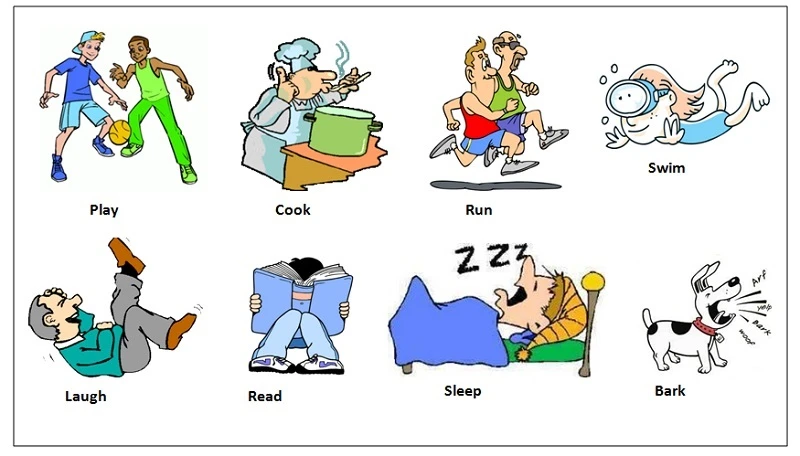
English vocabulary and phrases on Mid-Autumn Festival
In your journey to master English, building a rich vocabulary of verbs and understanding their proper usage is paramount. This article compiles a list of the most common English verbs, clearly categorized by meaning to help you learn and remember them with ease. Let's explore and add them to your personal "dictionary"!
| # | Vocabulary | Word type | Example | Preview |
|---|---|---|---|---|
| 1 | accept /əkˈsɛpt/ | verb | She accepted the invitation to the party | |
| 2 | achieve /əˈtʃiːv/ | verb | She hoped to achieve her goal of running a marathon | |
| 3 | acquire /əˈkwʌɪə/ | verb | The company acquired a new building last year | |
| 4 | adapt /əˈdapt/ | verb | The chameleon adapted to its surroundings by changing its color | |
| 5 | add /ˌeɪdiːˈdiː/ | noun/verb | Please add the sugar to the coffee | |
| 6 | address /əˈdrɛs/ | noun/verb | Please write your full name and address on this form | |
| 7 | admire /ədˈmʌɪə/ | verb | She admired his unwavering dedication to his craft | |
| 8 | admit /ədˈmɪt/ | verb | I have to admit, I was wrong about that | |
| 9 | adopt /əˈdɒpt/ | verb | The family decided to adopt a stray dog from the shelter | |
| 10 | advise /ədˈvʌɪz/ | verb | I advise you to take an umbrella; it looks like rain | |
| 11 | afford /əˈfɔːd/ | verb | I cant afford to buy a new car right now | |
| 12 | agree /əˈɡriː/ | verb | We agree that pizza is delicious | |
| 13 | allow /əˈlaʊ/ | verb | The parents allow their children to watch one hour of television each night | |
| 14 | amuse /əˈm(j)uːz/ | verb | The comedians antics amused the audience | |
| 15 | announce /əˈnaʊns/ | verb | The school principal will announce the winner of the contest at the assembly | |
| 16 | annoy /əˈnɔɪ/ | verb | His constant tapping on the desk annoyed me | |
| 17 | answer /ˈɑːnsə/ | noun/verb | The answer to the question is yes | |
| 18 | anticipate /anˈtɪsɪpeɪt/ | verb | We anticipate a large crowd at the concert | |
| 19 | apologize /əˈpɒlədʒʌɪz/ | verb | I apologize for the inconvenience caused | |
| 20 | appear /əˈpɪə/ | verb | The moon appears bright tonight |
Memorizing thousands of verbs can feel overwhelming. However, focusing on the most commonly used verbs brings surprising benefits:
Basic understanding and communication: Most daily conversations revolve around a limited set of popular verbs. Mastering these helps you grasp the main ideas and convey basic messages.
Below is a curated list of widely used verbs, organized into groups for easier learning and retention.

These verbs appear constantly in conversations, from eating and traveling to studying and working.
These verbs express thought processes and awareness.
These verbs describe specific actions across various contexts.
Simply reading a list may not help you retain verbs deeply. Try these strategies:
Learn by theme: Group verbs by topics you’re interested in (e.g., travel, cooking, work) to make them easier to associate and remember.
Verbs are essential to every English sentence, and mastering the most common ones is a solid stepping stone to confidently learning and using the language. Stay consistent, set small daily goals, and you’ll see remarkable progress in your vocabulary and communication skills!
Do you have any other commonly used verbs you’d like to add to this list? Feel free to share!

English vocabulary and phrases on Mid-Autumn Festival

Tips to improve vocabulary in communication

English vocabulary by topic: Clothes

The secret to remembering all 50 English vocabulary words every day easily

English vocabulary by topic: Human body

Vocabulary of the most popular subjects in English

Learn English about Covid: All about vocabulary and disease prevention

Vocabulary of Subjects in English

Set of 60 English vocabulary on educational topics

Vocabulary - just a small thing!
Comment ()